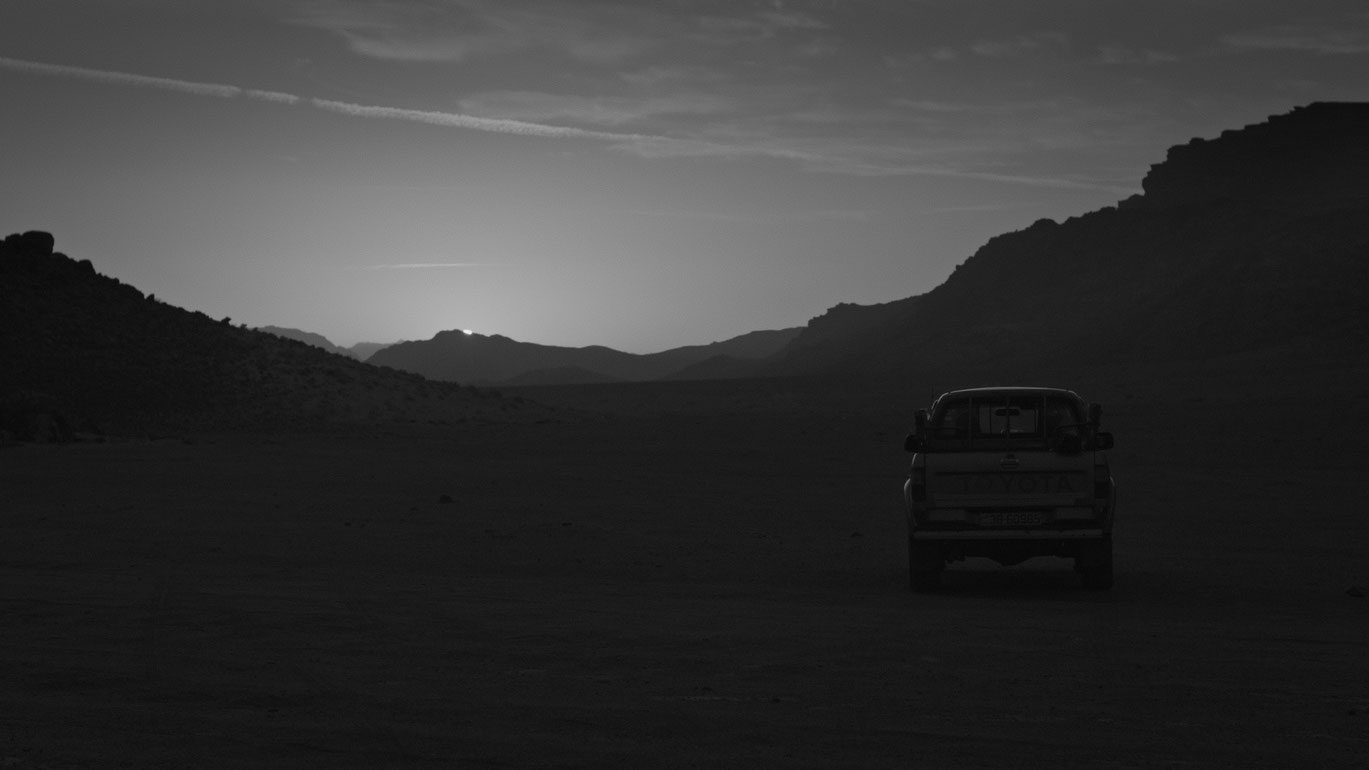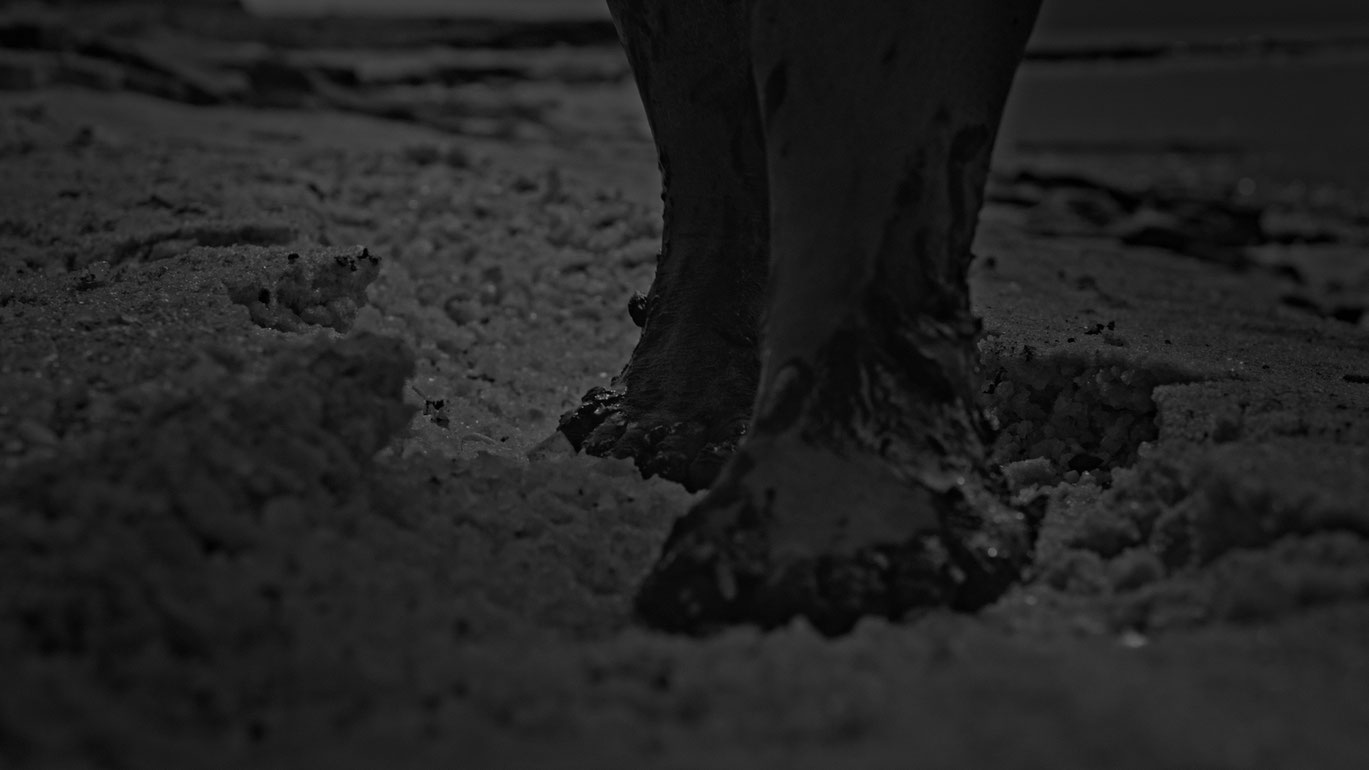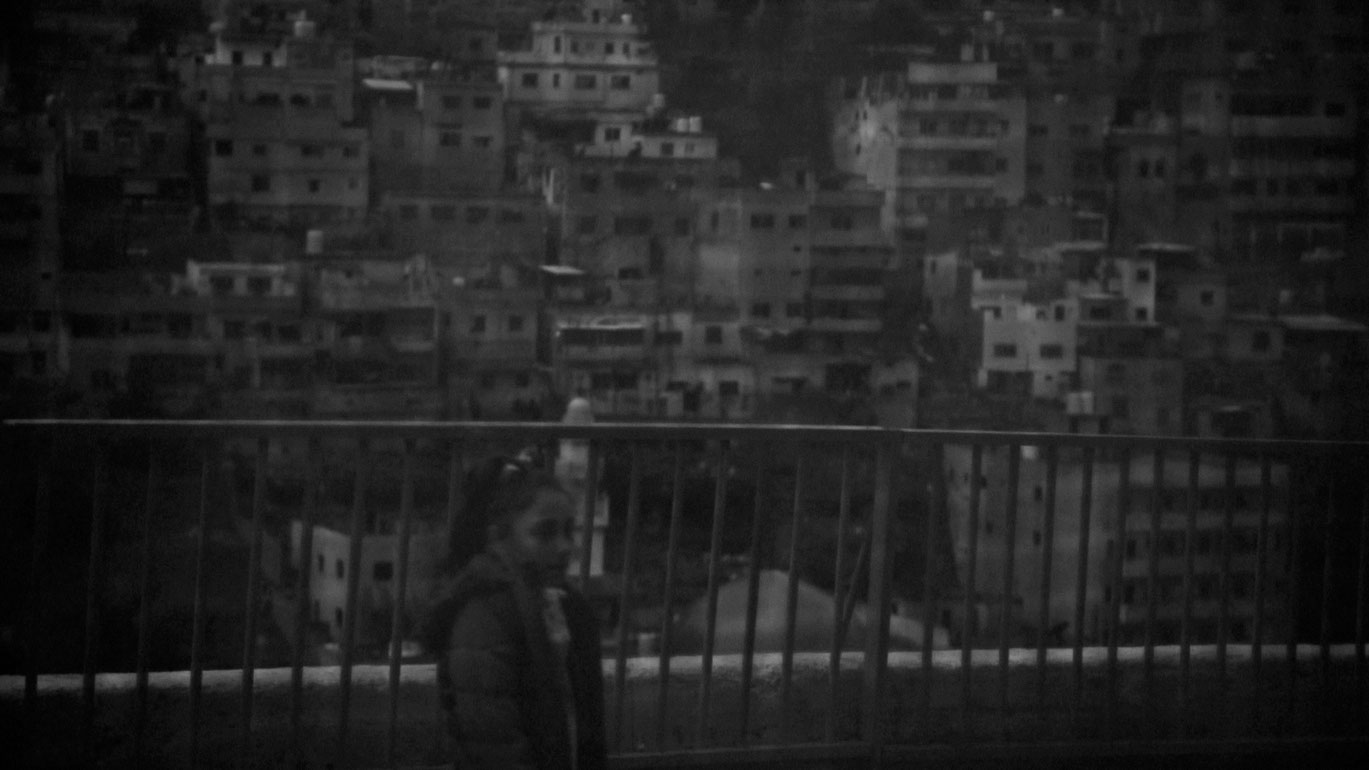HABĀ
In a shaky, restless voice, a young woman talks on the phone about feelings of panic and fear. As we listen to Sahar, the agitated woman, we see a black screen – a deep, impenetrable space from which the 22-year-old protagonist’s unsituated, disembodied speech directly approaches us. During the brief pauses, when only rapid breathing can be heard, black and white moving images flash across the screen, scattered elements taken from the Egyptian feature film Doa al Karawan (1959). That film is about the femicides that are often described as “honor killings” because the motive for the crime is to restore the family’s honor. “In my heart I know that something will happen to me,” Sahar confides to director Helin Çelik before the telephone connection abruptly cuts off. “Hello, Sahar? Are you still there? Hello?” Çelik takes the lack of an answer to her questions as the starting point for her essayistic film HABĀ – a search for traces of the young woman who disappeared while fleeing violence at the hands of her family. In an attempt to trace the route of the disappearance, Çelik talks to people who knew Sahar. On the soundtrack we alternately hear only her questions or the isolated answers of her interviewees. In between, in a speculative space of the probable, a collective narrative unfolds that goes beyond Sahar’s individual fate. What happened to her and the many other missing women? The camera repeatedly looks out over vast steppes, searching or scanning surfaces of water and sand – almost as if the vanished lives had entered or merged into the environment. In this particular interweaving of tangible and potential traces, HABĀ exposes structural violence, mechanisms of creating invisibility and inaudibility, as well as gestures of resistance. (Caroline Schöbi)
Translation: John Wojtowicz
HABĀ
2024
Austria, Spain
23 min



